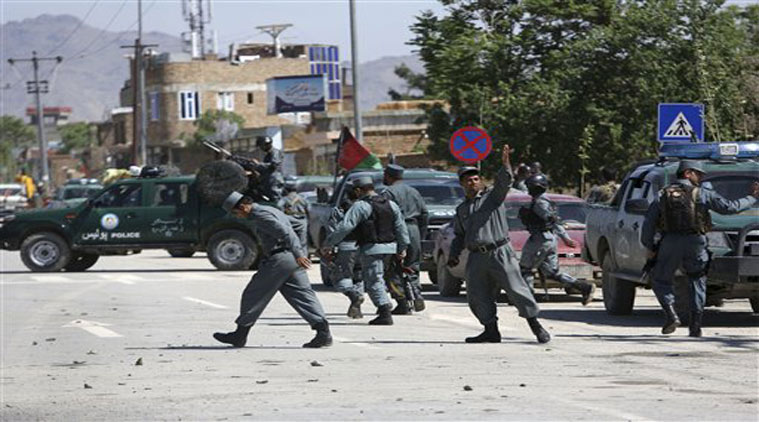At least four Afghan policemen and two Spaniards were killed in an hours-long Taliban siege near the Spanish embassy in Kabul’s diplomatic quarter, the latest high-profile insurgent attack that ended early Saturday.
At least four Afghan policemen and two Spaniards were killed in an hours-long Taliban siege near the Spanish embassy in Kabul's diplomatic quarter, the latest high-profile insurgent attack that ended early Saturday.
Multiple blasts and gunfire rocked the high-security zone after the brazen raid began Friday evening, just hours after President Ashraf Ghani voiced optimism that a peace process with the Taliban would resume within weeks.
"Four Afghan policemen, two foreign nationals and four attackers were killed in the terrorist attack in Kabul," Fraidoon Obaidi, the head of Kabul's Criminal Investigation Department, told AFP.
The government in Madrid confirmed that the two foreigners were Spanish policemen killed during the assault, which began when a huge car bomb struck during rush hour on Friday evening.
The powerful blast, which sent a thick plume of smoke into the sky, was followed by multiple explosions through the night along with sporadic bursts of gunfire.
Afghan officials said the last of the four assailants was killed in the early hours of Saturday.
The attack follows a deadly 27-hour Taliban siege of Kandahar airport this week as the militants ramp up attacks despite the onset of the harsh winter season, when the fighting usually calms down.
The Taliban also claimed responsibility for Friday's attack, saying the target was a foreign guest house.
The Spanish embassy was earlier reported to be the target of the attack, but Spain's Prime Minister Mariano Rajoy clarified that the assault was nearby and not on the compound.
"It was an attack against some guesthouses very near the embassy," Rajoy said, adding that all embassy staff had been evacuated as Afghan special forces cordoned off the area in Sherpur district in central Kabul.
The wealthy enclave of Sherpur is home to several foreign NGOs and the residences of senior government officials, including controversial former warlord Abdul Rashid Dostum, Afghanistan's first vice-president.